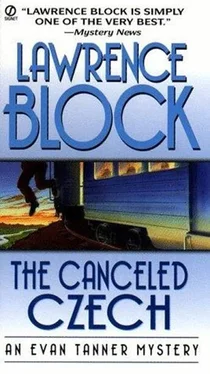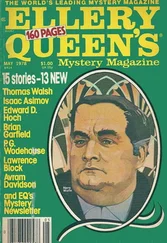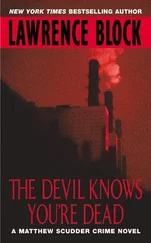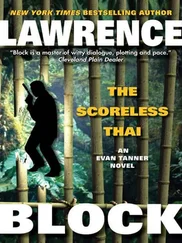I went on like that, and gradually they wavered, and finally they checked the story I had given them. It happened to be true, as they found out in due course, and ultimately they unlocked the cellar door and helped me drag Kotacek out of it. They thought he was dead, which pleased them no end. I saw no reason to change their minds on this score. I agreed that he was dead and convinced them, God knows how, that I had to take his body back with me. Since they had no particular use for his corpse they made no great objection. I was provided with a donkey and a cart and left that night.
So we got out of there with our skins. But Kotacek had done his best to sink our little ship, and he had certainly managed to scare the hell out of me. From that time on I did not give him a chance to screw us up again. I could not take the chance. For an old revolutionary, he had certainly forgotten how to keep his mouth shut. He simply could not be trusted, not with the infinite variety of hosts and helpers we had to make use of if we were going to get out of Yugoslavia.
From that moment on I kept him in his blue funk. Twice he came out of it, and each time I let him stay conscious just long enough to eat and drink and urinate and take his insulin. Then the light appeared and flickered in his red-rimmed eyes, and out he went again. He didn’t much like it, but then he didn’t have much chance to complain about it, either. He just stayed out, and he was better that way, much better.
We still hadthe donkey cart when we crossed into Greece, and Kotacek was still lying in the cart. So was I. Some bales of straw and bundles of vegetables were arranged artfully over us. A Macedonian named Esram drove the cart and used some of my money to bribe the border guards not to take too close a look at the cart’s contents. The bribe was accepted, the cart was passed on through, and we were in Greece.
It might have been a difficult border to cross but Esram crossed it all the time. He did not feel he was actually passing across a frontier at all. He was a Macedonian, and as far as he was concerned he was simply going from one part of Macedonia to another. That one part was said to belong to Yugoslavia while another part was said to belong to Greece, this was a matter of complete indifference to him. Someday he fully expected to lay down his life in an attempt to end this state of affairs. Macedonians had been dying in this fashion since time immemorial, and Esram expected to follow in the wake of his ancestors. Meanwhile he was content to follow his trade, crossing from Yugoslavia into Greece and from Greece into Yugoslavia, while never once leaving his homeland of Macedonia, crossing and recrossing a border in which he did not believe while smuggling contraband for profit and friends for friendship.
“You know,” he told me, “we have not forgotten you. In the village of Tetovo you are a hero.”
In Tetovo I had unwittingly touched off a one-day revolution.
“The town is rebuilding,” Esram said. “The government has sent experts to assist in the redevelopment, and there are new buildings to replace all that was destroyed. If you were to go to Tetovo today and tell the people that the time has come, they would level all the new buildings. You remember Todor, who died in the fighting? His sister expects a child and swears it is yours.”
“She speaks the truth.”
“That is good. I cannot go much further; I must return soon. We are a good distance from the border, but still in Macedonia.”
“Is it far to the train?”
“There is a train in Naousa. Twenty, twenty-five miles.”
“If you will ride that far with me, you may have the donkey and cart. They are of no use to me now, and if you do not mind the trip you may take them back with you.”
“I cannot pay for them, my friend.”
“I meant you to have them as a present.”
“You are kind. But you can sell them profitably in Naousa. The animal is old but still in good health, and the cart is sound. You might realize as much as-”
“I do not need money. I have more than I need. And I would want the donkey to go to a man who would treat her kindly, and not abuse her. She has been a good companion.”
“Better than the one in the back, eh? More lively?”
We laughed. He pulled out a goatskin pouch, wadded up tobacco, crammed it into the bowl of a cracked old pipe. He lit it and smoked and called in Macedonian to the donkey. Domestic animals in that part of the world must answer and respond to a wide variety of languages. What he now told the donkey was, “Keep walking, nice little donkey, and I will take good care of you.” Whether the animal heard or not, she most assuredly kept walking.
“She is evidently a Macedonian donkey,” Esram said. “See how nicely she obeys?” He laughed again. “I will be glad to have her. You are kind. And I will treat her well.”
At the railroad station in Naousa I bought two tickets for Athens. When the train came Esram helped me carry Kotacek inside and sit him upright in a compartment. “Too much wine,” we explained to a passing conductor. “He is old now. He cannot handle it the way he used to.”
“My wife’s father was the same way. He will not vomit?”
“No.”
“That is good.”
Along with the donkey and cart, I gave Esram my pistol, the pistol I had received from Ferenc. He had expressed the hope that I kill Kotacek with it, but that was not to be. “A gun for Macedonia,” I told Esram. “I know you will put it to good use.”
“I will treat the donkey with kindness and the gun with respect.”
“And here.” I gave him a variety of currency – Czech bills, Yugoslav bills, even some Austrian notes. “I don’t know how much this is. Someone can change it for you into dinars. Give it to Annalya, for the child when it is born. Tell her I think of her often. Tell her… you will think of things to tell her. Tell her I will come back someday.”
“She knows.”
The train was slow, bouncy, boring. Kotacek and I were alone in our compartment for most of the way. Fortunately we were still alone when he came out of his fog.
“Where are we?”
“ Greece.”
“The Greeks are pigs. When we are in power-”
I put him out again. It was almost frightening how perfectly it worked.
Athens was the end of a long road. The Iron Curtain was rusted mesh, and we had wormed our way through it. There would be no more stolen cars, no more donkey carts, no more trains. In Athens we could obtain passports, and from Athens we would fly directly to Lisbon, and that would be that. I was about ready to do something the easy way for a change. I was tired, thoroughly exhausted.
Kotacek came to in the railway waiting room. I had managed to wrestle him off the train, again passing him off as a drunk, but I didn’t want to cart him all over the city that way. I put him on a bench and sat down beside him. I read a newspaper and waited for him to come to. The Greeks never bother a man who is reading a newspaper. No one bothered me, and I sat there for an hour and a half and read every word in that newspaper before Kotacek finally woke up.
I took him in turn to a restaurant, a lavatory, and the home of an Armenian moneylender named Sarkan Besmoyan. Sarkan and I had corresponded extensively for many years. Although we had never met before, I felt I knew him well enough to ask him to recommend a good passport artist, and he evidently felt he knew me well enough to oblige me. He gave me an address in the Turkish quarter.
I left Kotacek with him. “Please do not permit him to leave your house,” I said. “His family is worried about him. He is an old man and gets confused easily. I am to bring him back to his friends and family, and if he wanders about harm may come to him.”
Читать дальше












